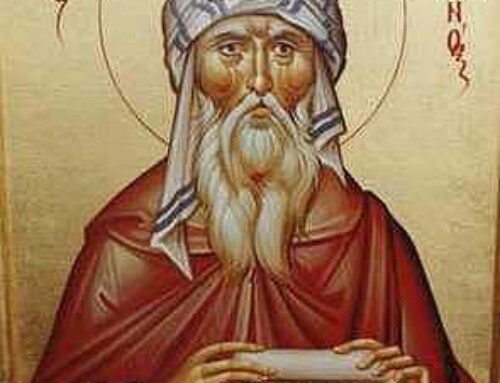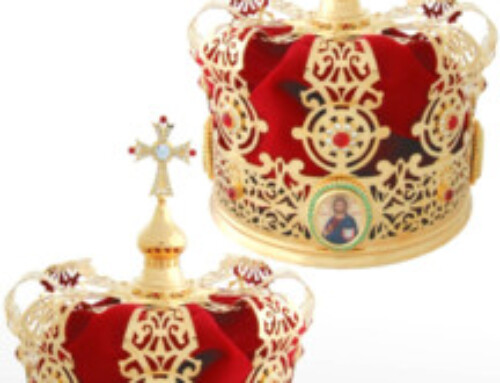Word Magazine September 1969 Page 16
THE GREATEST MIRACLE OF ALL
By Fr. Theodore E. Ziton,
New Kensington, Pennsylvania.
All the acts of God are wonderful and mysterious. Each one of His Works, being a divine manifestation, bears the stamp of the mysterious and the incomprehensible. But the Blessed Sacrament of Holy Communion is the greatest of all the miracles that our Lord wrought upon earth.
The little, fragile, unpretentious Lamb which we adore upon our altars outviews the very stars of heaven in their infinity and splendor; it outweighs the whole universe, filled though it be with the wonders of the Almighty. Not only one miracle, but a whole chain of miracles envelop it like the crystal, and encompass it like the gold and the precious stones of the Chalice. “Manhu, what is it?” exclaimed the people of Israel in joyful surprise when the manna fell like snowflakes from heaven. Manhu, what is it?” we may likewise exclaim, when we gaze upon our “Bread” from heaven and meditate on the wonders manifested in that miraculous Food.
In this inspiring Sacrament two golden chains of divine love unite. One extends from heaven to earth; the other ascends from earth to heaven.
The chains of love, springing from the Heart of God and from the soul of man, meet in the Sacred Lamb upon our altars, and are linked together in the closest and most intimate union. In the humble little Lamb, heaven and earth celebrate their espousals! But what makes this marvel of love still greater is the consideration of Our Lord’s profound humility whereby He has made this miracle possible. Under the commonest elements of food and drink, He veils His majesty and splendor, that, far from trembling or flying from before His face, as Israel once did, man may approach Him with childlike confidence. And this miracle will cease only with time. As a continual, an eternal memorial of His love, Jesus Christ dwells as a hidden God upon our altars, giving “food to them that fear Him.” If you were to ask a well-meaning pagan to guess the means whereby our Saviour, in His ardent love for men, had managed to hide His continual presence amongst us, what object would he name as most likely to have been chosen as the veil of the Godhead? Would it not be something of gold or silver, some precious jewel, or some rare and costly fruit? “Surely,” he would say, “it would or must be some noble and valuable object, under which the Divinity would choose to hide Himself!” Listen to the word of truth: “He took bread, and blessed it and gave it to His disciples, saying, take eat, this is my body! And having taken the chalice, and giving thanks, He gave it to them; and they all drank of it.” He chose bread and wine, for the species of the greatest Sacrament, His most stupendous miracle of love.
Admire herein His wisdom! Bread and wine are the most ordinary elements of our nourishment, and as such He chose them, because only through them could He unite Himself to and make Himself one substance with man.
Bread is to be found everywhere; it is eaten by human beings of every age and every state of life. It is called, indeed, “the staff of life.” It is so palatable that it gives place to no other kind of nourishment; yet, at the same time, it may be eaten with all other articles of food. Almighty God could never have chosen for this Sacrament a costly, rare kind of food, peculiar only to certain regions. It would have been foreign to His love and mercy to make that divine food of the soul something hard to procure, and hence inaccessible to His best-beloved servants, the poor. The designs of God in His Holy sacrament would have been thereby jeopardized, if not frustrated
altogether.
Wine is the generous and life-giving blood of the vine, and on that account specially worthy of being changed into the blood of Jesus Christ. It is the supplement to bread; and Our Lord not only chose to remain with us and renew on our altars the bloody sacrifice of Calvary, in a bloodless manner, under the species of bread and wine, because “He is a priest forever according to the order of Melchizedek,” who, as Holy Writ tells us, offered only bread and wine in the sacrifice to the Most High in thanksgiving.
Admire still more the wisdom of God in His choice of bread and wine. Bread is, as we have seen and know, the staff of life. It is the strength and support of life, and is changed into our flesh and blood. Wine is a strengthening beverage, “cheering the heart of man” and dispelling sadness, anxiety and fear. It inspires the one who drinks it with courage and confidence, and animates his whole being to greater activity. Are not these the grand and holy effects produced in our souls by a worthy reception of this Sacrament? The sacred Body of Our Lord supports and invigorates our spiritual life, and is a remedy for all its various diseases. It does away with all weakness and cowardice in the practice of good, or the warfare against evil; and thereby we are united more intimately with Jesus Christ. The Body of Christ is not changed into our substance, but we are changed into Him, and, as it were, we are deified! For you see, the bread is no longer bread; the wine is no longer wine; the bread and wine are changed through the course of the Divine Liturgy, into the Very Body and the Very Blood of Christ. . . to deify man. . . and make him again.. . a son of God!
God might create at any moment a new heaven and a new earth, a thousand times more beautiful and glorious than the present, but He can never work a greater miracle than this Sacramental mystery! •


